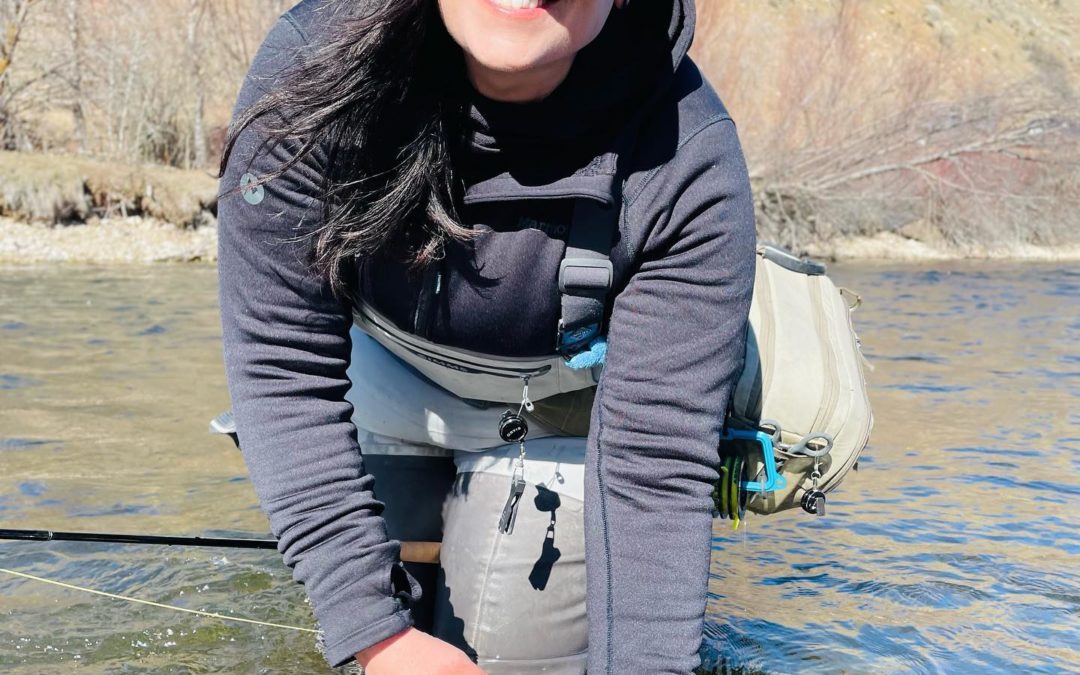Kimberly Cordero brought The Mayfly Project to Boise two years ago and is our lead mentor for this project. We are also honored to have her as a TMP sounding board to ensure we are creating safe projects for the kids we mentor nationally. Kimberly is not just a great leader and a huge support for TMP, but she is a hard core fly fisher! The second she gets done with her case load for the day, she’s on her way to the river, and we dig that about her! The Boise team just completed their second year of mentoring and we are always so impressed with how much fun they have! Check out our question and answer session with Kimberly!
What is your title?
Licensed Clinical Social Worker and Lead Mentor of Boise, Idaho Project
Does fly fishing really help this population? How can you tell?
Bruce Perry, one of the leading trauma psychologists today, says motion equals emotions. With all of the changes that foster children have to go through, it leaves them in a constant state of needing emotional regulation. Fly fishing does help these kids with regulating their emotions through calming them down and taking the focus off of their stressors. I believe in what fly fishing does for these kids because I get to see it first-hand. For example, the first outing is sometimes awkward and mentees are nervous or anxious. Then, the 2-3 outing the kids greet us with a smile, are happy to be there, and they can regurgitate what they learned. Watching them progress with their skills and seeing them be happy and smile is proof enough that what fly fishing does is important. At the end of the project, kids feel good about themselves and capable of going fly fishing on their own, which gives them not only more tools to cope with life’s stressors but more ways to have fun as well.
Why do you think providing a 1:1 mentor ratio for TMP kids is important?
I think these kids don’t have consistency or reliability in their lives so when an adult shows up in this compacity, and when they are reliable, it teaches them there are adults they can trust. The ratio not only helps the kids learn to fish easier, but it shows them that we are there to support them on their journey.
TMP has guidelines for our mentors that encourage the term ‘mentor’ to be more like a guide, and not to be a long-term mentor. From your professional experience, do you support this guideline?
Many children in foster care have attachment or behavior disorders and are not used to any type of normal, healthy, relationships with adults. TMP’s guidelines of making the mentoring relationship focused on teaching fly fishing and encouraging the mentees to have fun outdoors is the best way to ensure the child is safe emotionally. Also, children in foster care have several supports in place to help them, such as a therapist, school support, or caseworkers. From a systems perspective, we certainly don’t need to be adding more heavy relationships to what the kids are juggling, we need to be helping these kids get a break from the stressors of life in foster care and to get them outdoors fly fishing. A long-lasting relationship with nature will provide our mentees ways to cope with life, so we direct everything in our mentor/mentee partnership towards developing that outdoor connection.
Thank you for joining us and for all you do for children in foster care, Kimberly!!!!
Stay in the loop with news, events, and updates from The Mayfly Project



Recent Comments